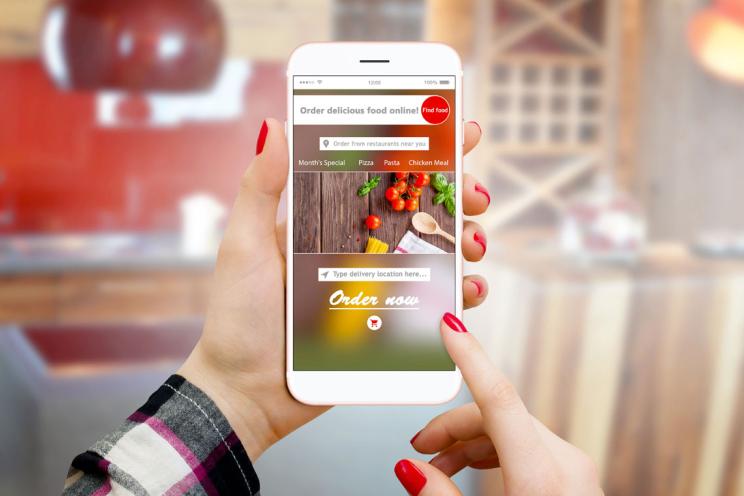
POS software customization tailored to your business needs
The importance of streamlined and efficient Point of Sale (POS) systems cannot be overstated. As businesses strive to enhance customer experience and gain a competitive edge, the role of POS software is pivotal.
Adaptability and efficiency are the keys to staying ahead of the curve, that’s why one size, does not fit all. This is where the power of customization comes into play, allowing businesses to tailor their POS systems to meet their unique requirements as the real game-changer.
The Evolution of POS Software
Traditionally, POS systems were seen as rigid tools with a standard set of features. However, the evolving needs of businesses have led to the development of highly flexible and customizable POS software.
Customization empowers businesses to go beyond the basics and create a solution that aligns perfectly with their operations, industry, and customer expectations.
Tailoring Your POS Software to Unique Business Needs
Gone are the days when businesses had to adhere to rigid, one-size-fits-all software solutions. Today, business has shifted towards customization, offering a range of benefits for businesses across industries. Customizable POS software takes the basic framework of a POS system and allows businesses to fine-tune it according to their specific requirements.
The beauty of customizable POS software lies in its adaptability. No two businesses are the same, and their operational needs can vary significantly. Whether it's a retail outlet, a restaurant, or an e-commerce venture, each entity operates with its distinct workflow, inventory management, reporting needs, and customer engagement strategies.
Even in the food and beverage sector, each restaurant has specific needs depending on the concept and size. Robust POS software providers offer you industry-specific solutions such as BIM CART which is a software designed in the form of an electronic shopping cart suitable for pastry and sweet shops
Advantages of Customizable POS Software
Enhanced Efficiency and Productivity
Every business operates differently. By customizing your POS software, you can streamline processes and eliminate unnecessary steps, reducing the time it takes to complete transactions. This not only speeds up the checkout process but also enhances overall operational efficiency.
Price-checking tools in the retail sector save time and enhance customer satisfaction similar to self-ordering kiosks in restaurants that increase revenues.
Tailored Reporting and Analytics
Every business thrives on data-driven decisions. Customizable POS software allows for the inclusion of specific analytics and reporting tools that generate actionable insights. This empowers businesses to make informed decisions, optimize inventory levels, and refine marketing strategies.
This ensures that the data collected is relevant to the specific metrics and key performance indicators (KPIs) that matter most to their operations.
Seamless Integration with Existing Systems
One of the challenges businesses face when adopting new software is the integration with existing systems. Customizable POS solutions can be adapted to seamlessly integrate with other tools and technologies already in use, ensuring a smooth transition and minimizing disruption.
Adaptability to Industry-Specific Needs
Different industries have unique demands when it comes to POS functionality. A customizable POS system can be tailored to accommodate specific industry requirements, whether it be in retail, hospitality, or any other sector. This adaptability ensures that the software is not a hindrance but an asset to the business.
Improved Customer Experience
The checkout experience is a critical touchpoint for customers. Customizable POS software allows businesses to create a user-friendly interface that aligns with their brand and provides a seamless and pleasant experience for customers. This can lead to increased customer satisfaction and loyalty.
Adding self-ordering kiosks in the hospitality sector saves time, increases revenues, and decreases wait times.
Check this blog for the full benefits of SOKs.
How Businesses Can Adapt POS Software to Their Needs
1. Identify Specific Business Requirements: Understand the unique needs of your business, including industry-specific demands, customer expectations, and operational workflows.
2. Collaborate with a Reliable POS Provider: Choose a POS software provider that offers a high degree of customization. Collaborate closely with their development team to communicate your specific requirements and expectations.
3. Prioritize Features and Functionality: Identify the must-have features and functionalities that will contribute most to your business goals. Prioritize these in the customization process to ensure a tailored solution that meets your immediate needs.
4. User Training and Support: Customized POS software may introduce new features or workflows. Ensure that your staff receives adequate training to maximize the benefits of the tailored solution. Additionally, work with a provider that offers reliable customer support.
5. Regular Updates and Maintenance: Stay connected with your POS provider for regular updates and maintenance. As your business evolves, so should your POS system. Regular updates will ensure that your software remains aligned with your changing needs.
While the concept of customization sounds promising, challenges may arise during the implementation phase. Businesses might face issues related to software compatibility, cost implications, or resource constraints. However, the benefits of customization far outweigh these challenges. Seeking guidance from experienced POS providers and investing in robust support can mitigate potential hurdles.
Customizable POS software offers a transformative approach to how businesses operate. It empowers you to break free from the constraints of standardized solutions and instead embrace tailored systems that align with your unique vision and objectives.





